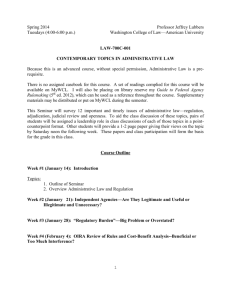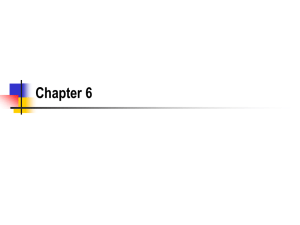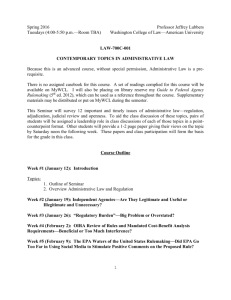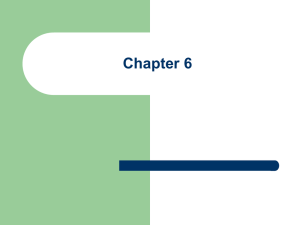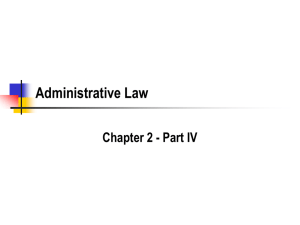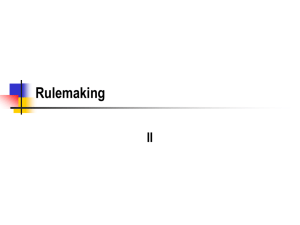Chapter 6, Part II
advertisement
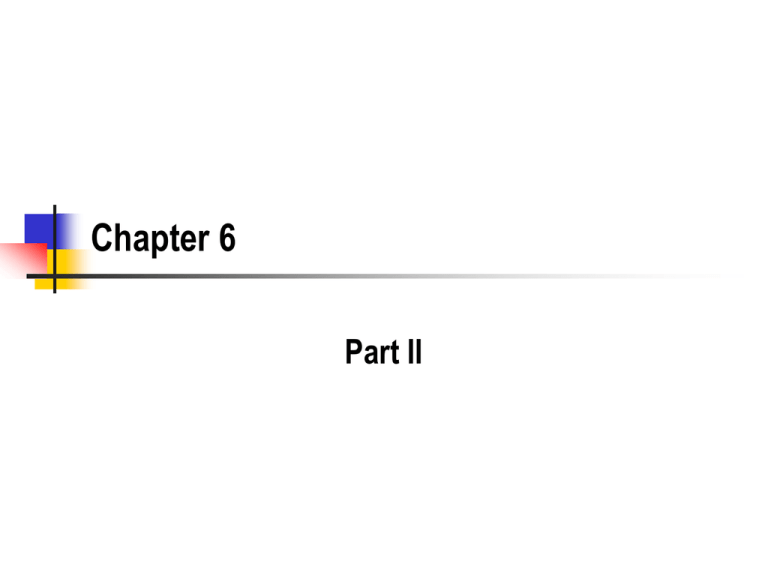
Chapter 6 Part II Does Closing Programs Require Rulemaking? Why was there no requirement of notice and comment in Lincoln v. Vigil? Indian health service closed its pilot program that provided care to disabled Indians Court said this was a classic agency choice of how to deliver services and did not require a rule making because it did not change eligibility for benefits, only how they were distributed. Making Rules through Adjudication How is this like what common law courts do? How is agency control of the process at the federal level different from a court? Why is the NLRB so affected by politics? Why might it want to make a rule through adjudication rather than through notice and comment? Why not just issue a guideline? NLRB v. Wyman-Gordon This is a controversial case - it is not exactly clear what the court was saying NLRB says that Defendant has to give the union a list of employees because this was established as precedent in a previous adjudication Why does the court reject that reasoning? Why did the court allow the order to stand? How does this undermine the court rejection of this as rule? NLRB v. Bell Aerospace NLRB uses an adjudication to announce a definition of managerial employees for bargaining units Court says this is OK Is there more latitude for a subsequent party to challenge the ruling of an adjudication than a notice and comment rule? Is this a reasonable limit on making rules through adjudication? Can an adjudication overturn a notice and comment rule? Rulemaking Petitions APA 553(e) allows citizens to petition an agency to promulgate, amend, or repeal a rule. This is particularly significant when the agency has promulgated a rule under one of the exceptions to notice and comment The agency must explain why it does not act on such a petition The problem is the same as with initiative and referendum - well organized or funded loonies can make law, or at least tie up the agency Can the court order the agency to make a rule based on a citizen petition? WWHT, Inc. v. FCC Pay TV wanted a rule to make cable carry their signal Agency says you do not need it and that the court cannot review this denial of rulemaking Court says it can review it, but only narrowly Geller v. FCC Request to the FCC to review cable TV policies in light of the revisions of the copyright act. The court said unusual circumstance that call the rule or lack of one in question are grounds for asking the agency to reconsider NAACP v. FPC Agency had to reconsider if it refused for the wrong its reasons Agency thought it did not have jurisdiction The Commissions reasons were found valid and the case was dismissed Congressional Deadlines Congress often requires elaborate rulemaking and then gives very little time to make the rule What can the courts do? Court can order the rule be made by x time, but what then? Waivers of Rules Why waive rules? What is the downside of waiving rules? Should a party be able to demand a waiver of a rule that does not provide a waiver mechanism? WAIT Radio v. FCC Plaintiff sued to be exempted from the clear channel radio rules because new technology reduced interference The court kicked it back for better reasons - i.e., fix the record The court observed that since the petitioner had to give specific facts and reasons supporting the petition, the agency needed to answer those End of the Chapter
